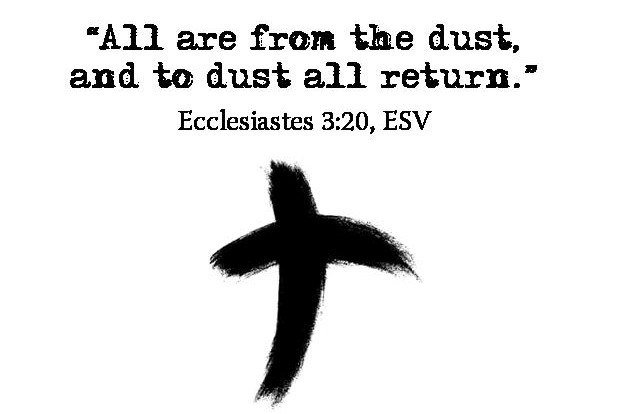We just got back from taking our kids to their first Ash Wednesday service. Ash Wednesday kicks off the season of Lent, a time where we examine ourselves with a repentant heart, confessing our sins and reminding ourselves of God’s mercy. Many people give something up for lent and the practice of fasting during Lent is common, so that people can take their focus off their needs and pleasures and focus on being made right with God.
During the Ash Wednesday service, participants are marked on the forehead with a cross. Tonight the prayer just before the marking with ash really stood out to me:
Loving God, you created us from the dust of the earth; may these ashes be for us a sign of our penitence and mortality, and a reminder that only by the cross do we receive eternal life.
What a simple reality. The prayer wasn’t burdened down with the language that we sometimes use to describe these truths, terminology like “physicalism,” “conditional immortality” or “annihilationism.” One of the frustrating things (but of course not the only frustrating thing) when Christians deny these biblical truths and talk about the immortality of the soul or about everybody living forever (it’s just a question of where they live) is that we have to come up with terminology to describe these positions.
This prayer, though, is a perfect example of how something like “annihilationism” or “conditional immortality” is ideally expressed, with the straightforward, unadorned claims of the Bible. We are mortal, made from the earth (or from stardust as some scientists like to say), we are dust and to dust we will return. We should have no default expectation of living forever, and it is only through Christ that we can have eternal life. Call that “conditional immortality” if you like, but it’s just the Christian Gospel.
Glenn Peoples

